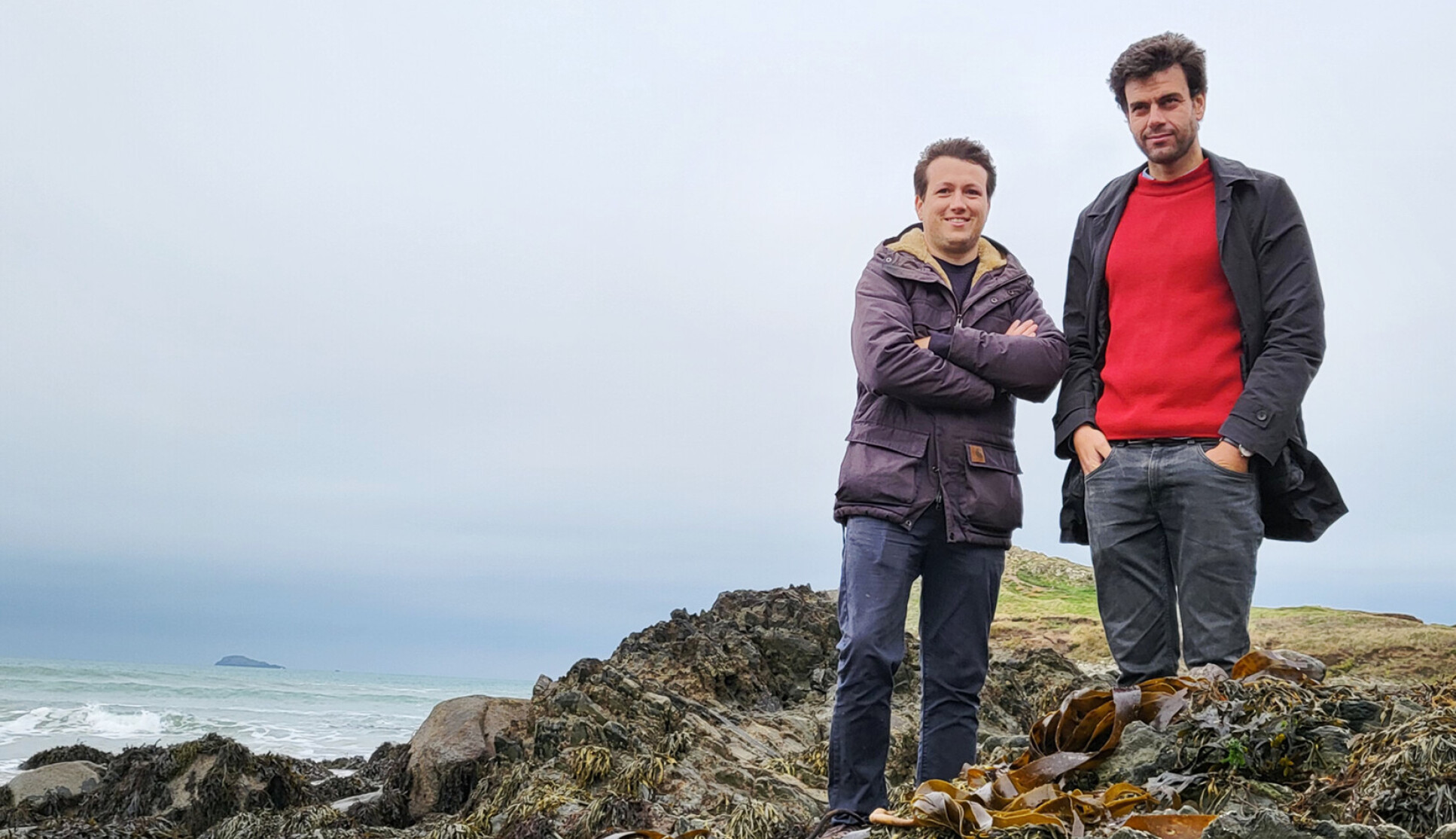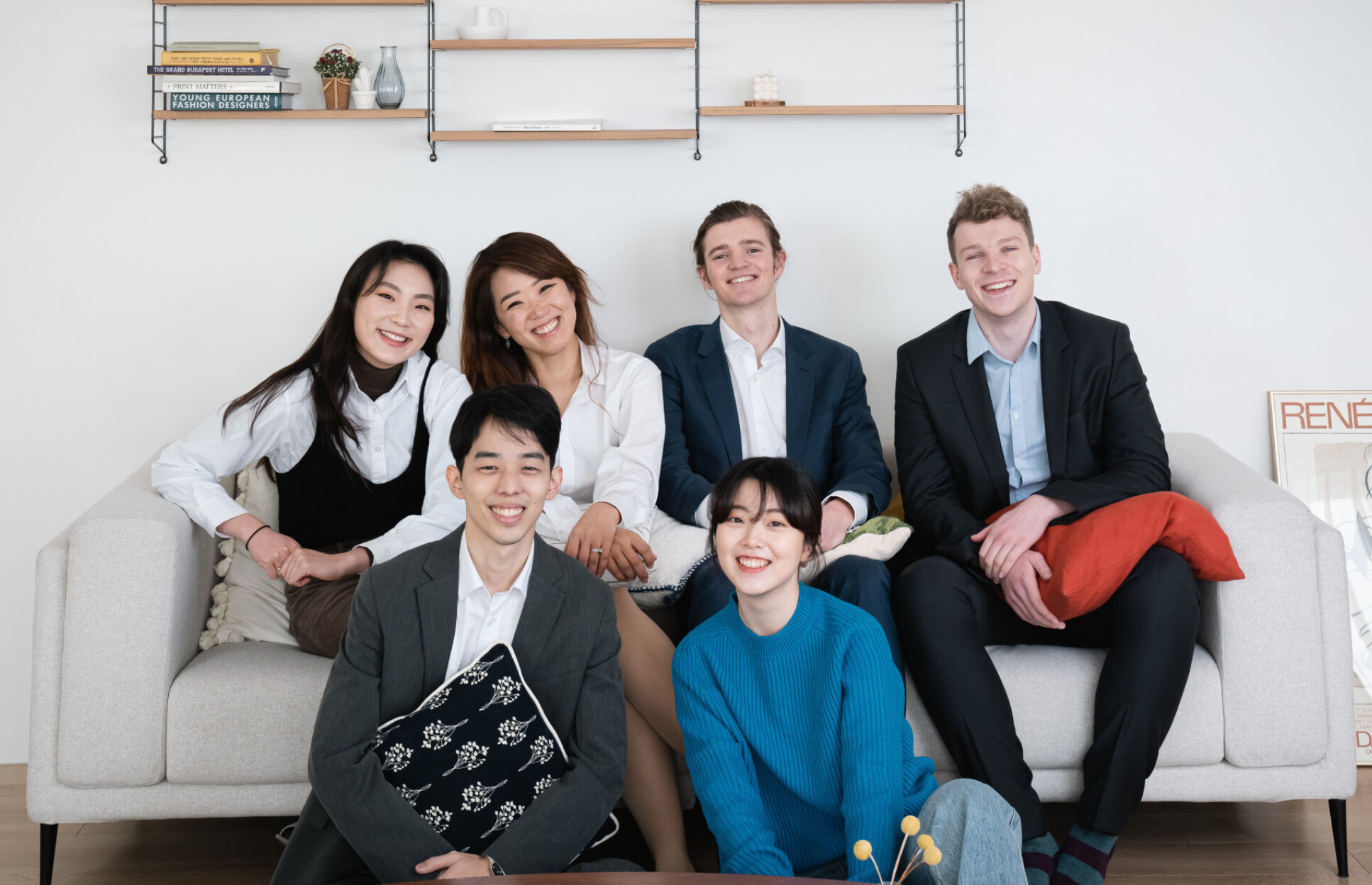Celebrating Imperial's international graduates

Image credit: Gravity Sketch
From a 3D collaboration tool to a seaweed-based alternative to plastic, we meet some of Imperial's graduate startup founders.
International students are vital to the UK’s science and innovation talent pipeline and culturally enrich our campuses. Nearly half of Britain’s 100 fastest-growing start-ups have at least one immigrant co-founder – our scientific strength is built on the creativity, collaboration and innovation of our international community. The We Are International campaign celebrates the UK's global student community - we meet Imperial international graduate startup founders from ten different countries to mark its relaunch.
3D creation and collaboration
Gravity Sketch is an intuitive 3D creation and collaboration tool, allowing users to ideate in 3D, create models, concept drafts and collaborate immersively through the use of AR and VR technologies. The platform is used by global enterprises such as Ford, Nissan, Vokswagean, New Balance, and Adidas, over 170 universities, and a community of over 1,000,000 creative professionals across the world as part of their design workflow.
Gravity Sketch was founded by alumni from the class of 2014’s Innovation Design Engineering programme, a collaborative Master’s programme ran jointly between Imperial and the Royal College of Art. Daniela Paredes Fuentes from Mexico and Oluwaseyi Sosanya from the USA met while studying at Imperial and successfully launched their company in 2014.
The College did a great job of assembling a strong diverse cohort, these individuals helped challenge me, push me, inspire me, and ultimately we grew together. Oluwaseyi Sosanya Co-founder of Gravity Sketch and Imperial graduate
They are now based in Brixton, South London, with over 90 employees across the globe. In 2020 they raised $3.7m in seed funding and in 2022 the company raised $33m in series A funding. In addition to this, in 2019 Daniela was one of nine women to be recognised in Innovate UK’s Women in Innovation awards, which celebrate women with ideas that could meet society’s biggest challenges set out in the government’s Industrial Strategy.
Oluwaseyi said: “The College did a great job of assembling a strong diverse cohort, these individuals helped challenge me, push me, inspire me, and ultimately we grew together. The idea of simply improving my professional skills as a sole contributor grew into a much larger idea of helping build transformative tools to help a wider community of like-minded people - Gravity Sketch.”
Accelerating adoption of sustainable proteins
Multus is a biotechnology company accelerating the adoption of sustainable proteins by developing key ingredients to enable the affordable production of cultivated meat at scale. Multus was founded in 2019 by four Imperial students, Reka Tron from Hungary, Cai Linton from the UK, Kevin Pan from Austria and Brandon Ma from South Korea. The team met while studying at Imperial, through the College’s Synthetic Biology Society.

Multus has grown through Imperial’s innovation ecosystem, first starting the development of their idea in Imperial’s Advanced Hackspace before growing in the Translation and Innovation Hub, both at the College’s White City Campus.
Multus won a highly prestigious European Innovation Council grant worth €2.5m in June 2022, which formed part of a successful £7.9m Series A investment announced in 2023.
Concrete water tank

Imperial graduates Paul Mendieta from Ecuador and Beren Kayali from Turkey founded Deploy Tech developing an air-deployed, ready-to-use concrete water tank capable of holding 14,000 litres of water with a 70% lower carbon footprint than conventional concrete water tanks. DEPLOY’s tanks have recently been used in Turkey to provide water storage to almost 30,000 people following devastating earthquakes that occurred in early 2023. Their tanks are manufactured with a concrete-filled fabric, that ensures a durable, resistant and reliable product, the team say.
Now based in South Wales, DEPLOY are developing their product to deliver long-term sustainable growth and create and safeguard highly skilled jobs in the region.
The company has won several awards including being the runner up in 2021’s Santander X Entrepreneurship Awards and has raised over £1 million since incorporation in June 2020.
Paul said: “It's an honour to represent all those international students that come to Imperial dreaming about developing new technology in the UK. As international students, sometimes we assume education is the only outcome of coming to Imperial but the entrepreneurial support in the college is outstanding.”
Seaweed-based plastic alternative
Notpla, founded by Pierre Paslier from France and Rodrigo Garcia from Spain when they were studying Innovation Design Engineering at Imperial, has developed a seaweed-based biodegradable alternative to plastic. The technology presents an innovative solution to reduce plastic pollution, with the use of Notpla products helping to remove 2.83 million single-use plastics from the environment so far.
In December 2022, Notpla became the first UK-based company to win the Prince of Wales’ Earthshot prize, receiving £1m in funding for their success in the ‘Build a Waste-Free World’ category. Notpla packaging products were used in the 2019 London Marathon, where over 36,000 of their edible capsules filled with Lucozade were handed out to runners in a bid to reduce plastic waste. The team has also made over one million food boxes for takeaway company Just Eat, with the potential to replace over 100 million plastic coated containers in Europe in the future.

During Pierre and Rodrigo’s time at Imperial, they received support from Imperial’s well-established entrepreneurial ecosystem, including Imperial Enterprise Lab, the Centre for Climate Change Innovation and the Imperial White City Incubator, to grow their business.
The team said: “The opportunity to study at a world-renowned institution like Imperial College London was crucial for taking our first steps with our business. Notpla is now a thriving company, with headquarters in London, that has created 70 green jobs for the UK economy and is leading the way in the transition to a sustainable, zero pollution future.
“We aim to expand further this year, with plans to create 30 more green jobs and triple the annual amount of plastic saved through our products.”
Wearable device for Parkinson's
Charco Neurotech, which has created a wearable device to alleviate the symptoms of Parkinson’s disease, was founded by South Korean student Lucy Jung in 2019.
The medical technology startup’s innovative device, named CUE1, is designed to be worn on the chest and delivers vibrations that early research suggests may help reduce several symptoms of Parkinson’s disease. The CUE1 device is now being used in Cambridge’s Addenbrooke hospital to help Parkinson’s disease inpatients. The founders say it could help patients walk, move their hands and use tools more quickly and easily.

With support from entrepreneurship programmes at Imperial and an early seed investment by the Imperial College Enterprise Fund, the company went on to receive $10 million investment in a round led by Amadeus Capital Partners and Parkwalk Advisors in 2021, representing the largest seed round in Europe for a health technology device that year. The team, which consists of people from a wide range of backgrounds, including clinicians, engineers, and designers, has quickly grown from two founders to ten dedicated team members and is continuing to expand.
Lucy said: “I chose to study Innovation Design Engineering as it was a place that supported creativity, design, and technology to be used together to create impactful projects.”
Article text (excluding photos or graphics) © Imperial College London.
Photos and graphics subject to third party copyright used with permission or © Imperial College London.
Reporter
Joanna Wilson
Communications Division
James Tooze
College Headquarters
Conrad Duncan
Communications Division
Stephen Johns
Communications Division